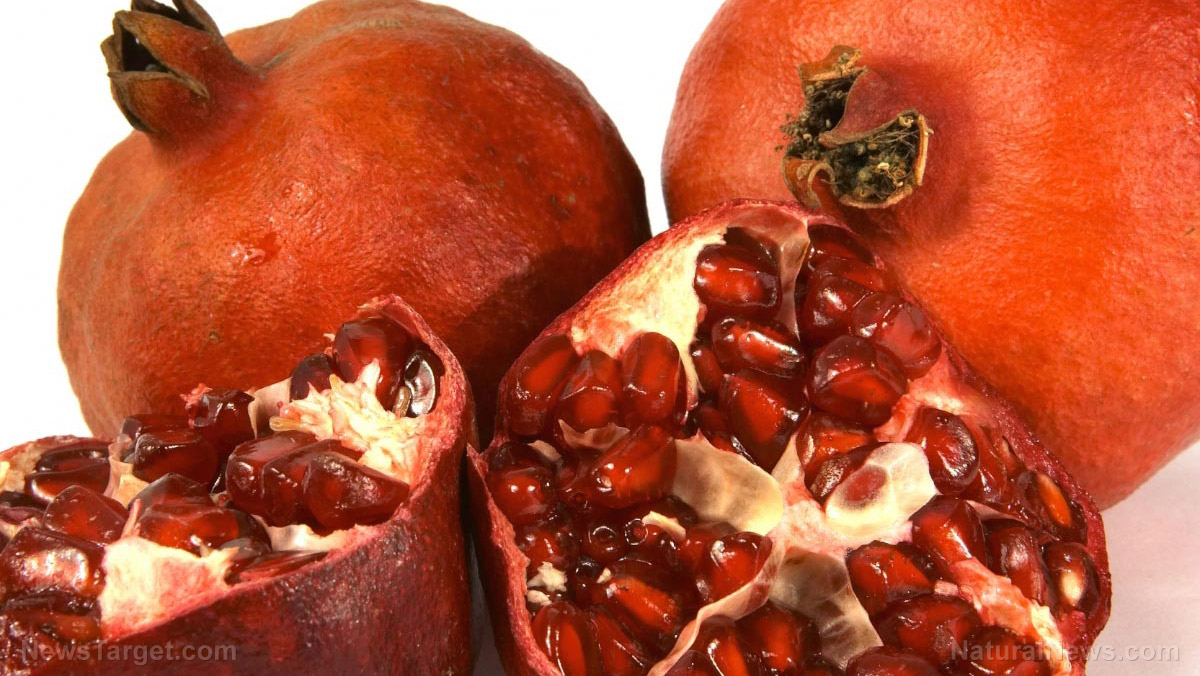Study: Eating a plant-based diet can help lower heart disease risk
06/21/2022 / By Zoey Sky

Numerous studies have shown that following a plant-based diet offers many health benefits, such as promoting weight loss and boosting heart health.
According to a study published in the Journal of the American College of Cardiology, reducing animal product intake and following a plant-based diet can also help lower your heart disease risk by decreasing the production of a gut microbial metabolite linked to coronary heart disease.
Your gut microbiota consists of microbes that affect many things, such as your energy levels, immune response, metabolism and nutrient absorption.
When gut bacteria digest nutrients common in animal products like red meat, it produces a metabolite called trimethylamine N-oxide (TMAO). Data suggests that TMAO is linked to a greater risk of heart attack and coronary heart disease (CHD).
Diet quality and the link between TMAO and CHD
For the study, the researchers examined 760 female volunteers in the Nurses’ Health Study. This prospective cohort study involved 121,701 female registered nurses aged 30 to 55.
The women were asked to report on their dietary patterns, smoking habits and physical activity.
The research team also analyzed demographic data and blood samples from the female participants taken 10 years apart. The plasma concentrations of TMAO were measured in both the first collection and the second blood collection.
The risk of CHD was calculated from changes in TMAO levels in the body during the follow-up period. Meanwhile, TMAO levels were assessed based on diet and nutrient intake.
The researchers found that female volunteers who developed CHD had higher blood TMAO levels, higher body mass indices (BMI) and a family history of heart attack. The women also didn’t follow a healthy diet, meaning they ate more animal products than vegetables.
The researchers also found that volunteers with the largest increases in TMAO levels across the study had a 67 percent higher risk of CHD.
Every increase in TMAO was linked to a 23 percent increase in CHD risk. This association remained after the researchers controlled for demographic, diet and lifestyle factors, confirming the connection between higher TMAO levels and CHD risk.
Dr. Lu Qi, MD, senior author of the study and director of the Tulane University Obesity Research Center, advised that diet is “one of the most important modifiable risk factors to control TMAO levels in the body.” As the study suggests, decreasing TMAO levels by eating more plant-based foods may be the key to preventing heart disease.
Tips for shifting to a plant-based diet
If you want to lose weight and decrease your heart disease risk, a plant-based diet is one of the best diets that you can try. Here are some tips that might help: (Related: How to beat heart disease with diet and lifestyle.)
Make starches and fruits the basis of your new diet.
While a plant-based diet involves a lot of leafy greens, you’ll also be eating more fruits and starches. Remember that leafy greens alone don’t have enough calories to fuel your body and satisfy your appetite.
For your plant-based diet to succeed, you need to consume enough healthy calories. You can do this by making starches or fruit the center of your meal plate. To make delicious, filling meals, use legumes, potatoes, sweet potatoes and whole grains.
Eat foods you like and don’t obsess over individual nutrients.
A lot of people spend so much time trying to get the right amount of countless nutrients. When you switch to a plant-based diet, precision shouldn’t be your focus. Instead, choose whole fruits, vegetables, tubers, whole grains and legumes. To avoid feeling deprived or constantly hungry, make tasty meals using a variety of these ingredients.
Focus on big changes and don’t worry about every detail.
Your goal is to make big changes like switching from meat, eggs and milk to plant-based foods. These changes can significantly improve the nutritional composition of the foods you are eating, so this is where you usually notice the greatest improvements in your well-being.
Before eating out, check menus online.
If you’re doing great on your diet, don’t break your streak by ordering your old favorites. Before you dine out, check a restaurant’s menu online or call ahead. Always look for restaurants with great reviews and many veggie options.
Look for people who are also on a plant-based diet.
Dieting alone can be hard, but if you can check in with like-minded people, you can all hold each other accountable on days when someone is struggling to follow the diet.
When you spend time with people who share the same values, you can swap ideas for healthy recipes or great restaurants with many options for plant-based dishes.
For more about the benefits of a plant-based diet, visit Fasting.news.
Watch this video and learn how to start a plant-based diet.
This video is from the yummy goodies! channel on Brighteon.com.
More related stories:
Six distinct benefits of eating a primarily whole foods, plant-based diet.
Statins only SLOW DOWN heart disease progression, but a plant-based diet reverses it.
Plant-based diet greatly reduces risk of cancer, say studies.
Sources include:
Submit a correction >>
Tagged Under:
alternative medicine, food is medicine, food science, heart disease, heart health, natural health, natural medicine, organics, plant-based diet, prevention, research, tips
This article may contain statements that reflect the opinion of the author
RECENT NEWS & ARTICLES
COPYRIGHT © 2017 ORGANICS NEWS




















